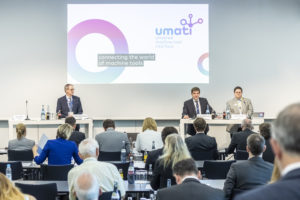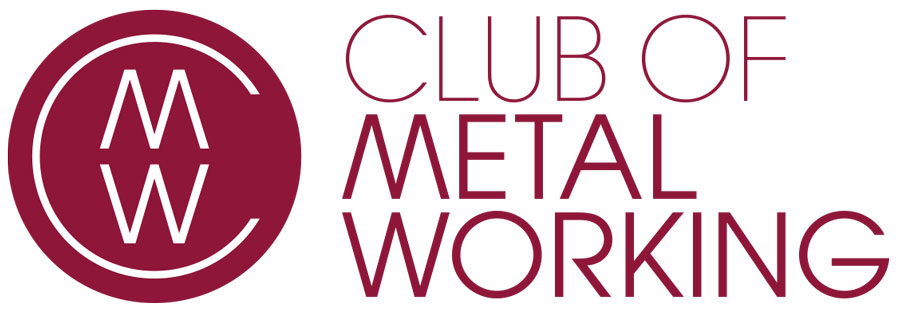
umati will only be accepted as a standard if as many companies as possible use it. The umati presentation at the AMB (including press conference and stand) was complemented by a well attended information event for VDW members. The aim was to provide information first-hand. Dr. Alexander Broos from the VDW explained the background to the project and the plans for the future. Caren Dripke from the project partner ISW (Institute for Control Technology of Machine Tools and Manufacturing Systems) of Stuttgart University gave an insight into the existing semantics and presented use cases and parameters.
For all those interested who were not able to attend the AMB, here is a summary of the main information:
What is umati?
- umati is a universal machine tool interface that can integrate machine tools and systems safely, seamlessly and effortlessly into customer- and user-specific IT ecosystems.
- umati connects machine tools to IT systems inside and outside the production environment (MES, ERP, Cloud, …).
- umati provides standardised semantics and an information model based on OPC UA.
- umati contains specific extensions for manufacturers and users of machine tools.
- umati provides a standard not only for Germany, but for users all over the world.
What is standardised?
- Parameter definitions based on use cases (OPC UA procedure), e.g.
- Quick overview Production in progress
- Program and machine status
- Overview of production order
- Error overview
- Operation status
- 100+ parameters, 20+ use cases as basis for information modelling in OPC UA
- Overview of the information clusters of the OPC UA companion information model
- Machine identification
- Machine operating status
- Production order information
- Consumption information (energy, consumables)
- User interaction forecasts
- Machine status changes
How can I use umati and what does it cost?
- The use of umati simplifies (and reduces the effort required for) connecting a machine to the customer’s IT infrastructure.
- Fewer staffing resources are required, projects are completed faster and costs are reduced.
- umati is an open, freely available standard based on OPC UA.
- There are no additional licence fees for the use of the umati companion specifications on your own product’s OPC UA server.
- Specially developed software components needs to be licensed.
- The use of the umati brand is linked to certification of the implemented interface; additional costs may be incurred for this
When and how can I participate?
- The concept is currently being developed in a small, closed working group, as it requires a high level of commitment, intensive discussion and mutual trust.
- A first review will be conducted in an extended circle of selected participants in the fourth quarter of 2018.
- From the beginning of 2019, the Joint Working Group (JWG) of the OPC Foundation will start a review process in which all stakeholders can participate.
The goal is to create an OPC UA companion specification. - Most of this process should be completed by EMO Hannover 2019; a Draft Companion Specification and a Release Candidate should be available at least.
- Interested companies can join the initiative at EMO Hannover 2019; the announcement will be made towards the end of the first quarter of 2019. A design freeze of the Companion Specification will be imposed for the EMO Hannover 2019 implementation.
If you are interested in collaborating in the JWG or becoming a partner for EMO Hannover 2019, you can pre-register on the Internet at info@umati.info.
Author: Götz Görisch, VDW
Photo: VDW
